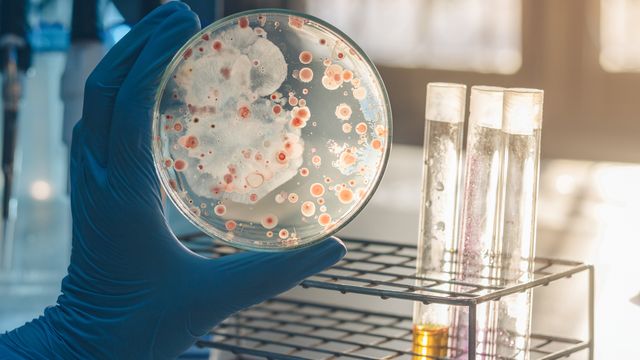Listeria monocytogenes Culture Testing in Dairy Products
Contamination with Listeria monocytogenes is a significant concern in dairy products, especially for ready-to-eat (RTE) items. This pathogen can cause severe foodborne illness, particularly in vulnerable populations such as pregnant women, the elderly, and immunocompromised individuals. Ensuring the safety of dairy products from this microorganism is critical to maintaining public health.
The presence of Listeria monocytogenes in dairy products can lead to recalls, financial losses, and damage to brand reputation. Therefore, implementing a robust culture testing protocol is essential for quality assurance and compliance with regulatory requirements. Our comprehensive testing service helps clients identify potential contamination early, ensuring that only safe and compliant products reach the market.
The Listeria monocytogenes culture test involves several steps, including sample collection, transport media preparation, incubation, and identification of colonies. The test can be conducted using various growth media such as buffered charcoal-yeast extract (BCYE) agar or tryptose soy broth (TSB). It is important to follow standardized protocols to ensure accurate results.
Our laboratory adheres to international standards like ISO 16865:2004 for the detection of Listeria monocytogenes. This standard provides guidelines for the isolation and identification of this pathogen in food products, ensuring consistency and reliability across different laboratories.
The test process begins with the collection of samples from various points in the production line, such as raw materials, processing equipment, packaging materials, and finished products. Samples are then prepared using appropriate transport media to preserve the viability of Listeria monocytogenes until they can be cultured. Proper sample handling is crucial to prevent contamination and ensure accurate results.
After collection, samples are incubated under specific conditions that favor the growth of Listeria monocytogenes. This typically involves incubation at 30°C for 24 hours followed by a secondary incubation at 42°C for another 24 hours if colonies are present on the BCYE agar. Once grown, colonies are identified based on their morphological characteristics and biochemical tests.
The identification of Listeria monocytogenes is further confirmed using techniques such as serotyping or molecular methods like PCR. These methods help differentiate between different strains of Listeria to provide more detailed information about the contamination source.
Scope and Methodology
| Step | Description |
|---|---|
| Sample Collection | Carefully collect samples from various points in the dairy production process. |
| Transport Media Preparation | Prepare appropriate transport media to maintain sample integrity and viability. |
| Incubation | Culture the samples under controlled conditions for 24 hours at 30°C, followed by a secondary incubation at 42°C if colonies are present. |
| Identification | Identify colonies based on their morphological characteristics and biochemical tests. Confirm using serotyping or PCR. |
Quality and Reliability Assurance
- Adherence to ISO 16865:2004 standards for Listeria monocytogenes detection.
- Use of validated growth media such as BCYE agar and tryptose soy broth (TSB).
- Precision in sample handling to prevent contamination and ensure accurate results.
Competitive Advantage and Market Impact
Our Listeria monocytogenes culture testing service offers several competitive advantages. By ensuring the safety of dairy products, we help clients avoid costly recalls and maintain brand reputation. Compliance with international standards enhances trust among consumers and regulatory bodies. Our detailed reporting provides valuable insights into potential contamination sources, allowing for targeted improvements in hygiene practices.
Additionally, our service supports continuous improvement initiatives by providing data on Listeria presence over time. This information can be used to refine production processes and implement preventive measures proactively. By partnering with us, clients gain a strategic advantage in the competitive dairy market while contributing to public health.





